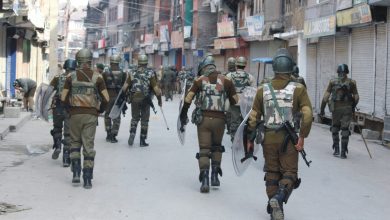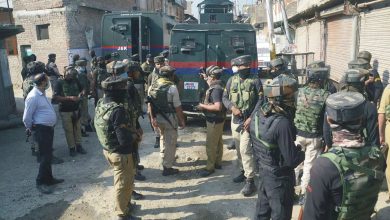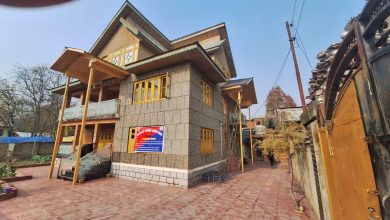Engineer Rashid’s rights as MP undermined as NIA seeks exclusive authority
 New Delhi: India’s National Investigation Agency (NIA) has decided to approach the Delhi High Court seeking authorization to grant the Special NIA Court the powers of an MP/MLA court.
New Delhi: India’s National Investigation Agency (NIA) has decided to approach the Delhi High Court seeking authorization to grant the Special NIA Court the powers of an MP/MLA court.
According to Kashmir Media Service, this move is intended to enable the Special NIA Court to preside over the so-called “terror funding” case involving Engineer Sheikh Abdul Rashid, an Independent MP from Baramulla, Indian occupied Jammu and Kashmir.
Senior Advocate Siddharth Luthra, appearing as the Special Public Prosecutor for the NIA, informed the Patiala House Court that it would take up to ten days to receive a response from the High Court. Principal District and Sessions Judge Vimal Kumar Yadav listed the matter for the next hearing on December 6.
The case has sparked debates over jurisdiction. The NIA argues that cases under the Unlawful Activities (Prevention) Act (UAPA), a widely criticized draconian law, fall under its exclusive purview as per the NIA Act. However, the MP/MLA court was specifically established to handle cases involving legislators following a Public Interest Litigation (PIL). The NIA contends that transferring the case to the MP/MLA court could unnecessarily delay proceedings.
Engineer Rashid, currently in judicial custody at Tihar Jail, had filed a plea for interim bail to attend the ongoing parliamentary session. Despite being an elected representative, Rashid’s plea has been pending for months. His counsel, Advocate Vikhyat Oberoi, urged the court to expedite the matter, citing the infringement of Rashid’s constitutional rights as a parliamentarian.
The Special NIA Court had earlier recommended transferring the case to the designated MP/MLA court, recognizing Rashid’s status as a Member of Parliament. However, the NIA continues to resist the move, raising concerns about its implications for fair trial and accountability.
The case highlights the deprivation of rights faced by even elected representatives from Indian occupied Jammu and Kashmir. Law experts argue that Rashid’s prolonged detention and the delay in addressing his bail plea reflect broader attempts to suppress voices from the occupied territory.








